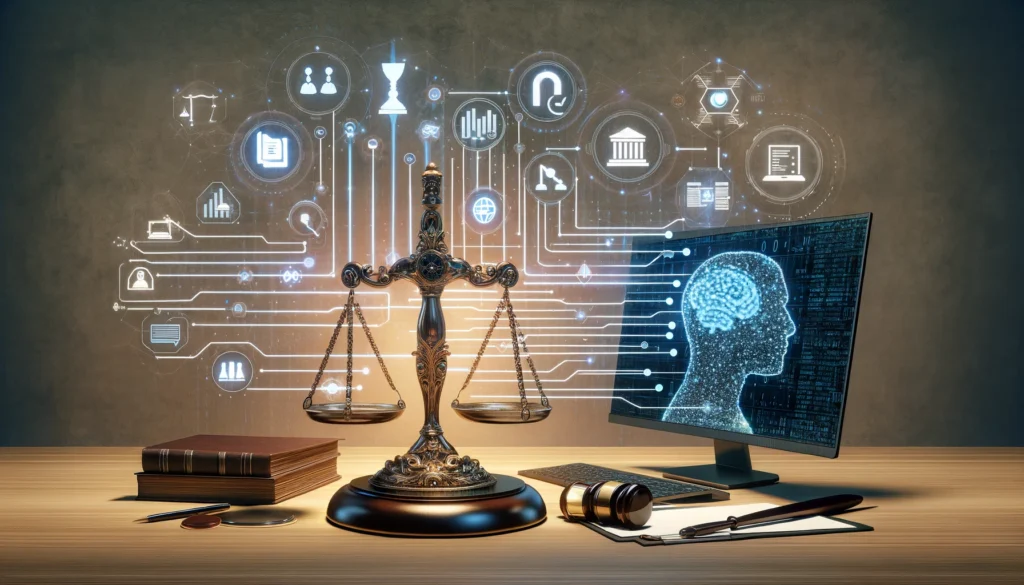
Unlocking New Potential: Understanding the Role of ChatGPT in Corporate Merger Filings
In the fast-paced landscape of corporate mergers, staying ahead requires more than just legal acumen. Large language models (LLMs) such as ChatGPT are poised to be game-changers, ushering in efficiency and precision. By leveraging LLM technology, legal professionals can expedite document review, conduct research, and draft filings with unprecedented speed and accuracy.
ChatGPT, a powerful AI tool, assists lawyers in automating and optimizing numerous tasks, ultimately allowing them to focus more on strategic considerations. Equipped with an understanding of legal terminology and the ability to analyze vast amounts of text, ChatGPT is transforming how firms approach corporate merger filings.
A Paralegal’s Secret Weapon: Setting Up an Effective Workflow
To integrate ChatGPT into daily legal tasks effectively, a structured workflow is essential. The initial steps involve setting up the tool to seamlessly align with your existing processes. Begin by identifying repetitive tasks that consume significant time, such as drafting initial merger documents or conducting preliminary research.
One of the crucial aspects of maximizing ChatGPT’s utility is through prompt engineering. Tailoring prompts to be specific, clear, and concise will yield more accurate and useful outputs. For instance, a prompt like “Summarize the key terms of this merger agreement” is more effective than a vague “Provide an overview of this document.”
Developing a workflow that incorporates ChatGPT involves assessing its capabilities and limitations. Regularly updating prompt templates and feedback loops ensures continuous improvement and realization of AI’s full potential.
Prompt Mastery: Crafting the Perfect Request
Crafting the perfect prompt is an art that requires understanding the elements of a well-structured request. Clear intent, context, and desired outcome should be articulated in the prompt to guide ChatGPT effectively.
- Document Review: “Identify and highlight the key clauses in this merger agreement related to shareholder rights.”
- Legal Research: “Summarize recent case law on antitrust regulations affecting corporate mergers.”
- Drafting: “Generate an initial draft for a confidentiality agreement applicable in this merger scenario.”
These examples illustrate how strategically structured prompts can lead to high-quality outputs, minimizing the need for extensive revisions. The key is to provide sufficient context without being overly verbose, ensuring clarity and precision in the responses.
Efficient Document Review: Simplify and Accelerate
Document review, often a labor-intensive task, can be significantly expedited using ChatGPT. By generating quick summaries and extracting key information, ChatGPT allows legal professionals to sift through lengthy documents efficiently.
For instance, a prompt like “Summarize the executive summary of this 50-page merger document” will produce a concise overview, enabling quicker assessments. Highlights of critical information, such as financial terms, regulatory clauses, and stakeholder stipulations, ensure that important details are not overlooked.
Streamlined Legal Research: Untangling Complex Webs
Legal research can be a time-consuming endeavor, but ChatGPT offers techniques to streamline this process effectively. Leveraging the model for targeted research can simplify and expedite the gathering of relevant information.
By asking ChatGPT to “Identify recent trends in regulatory challenges for cross-border mergers,” legal professionals get a concise summary, saving hours of individual research. However, it’s imperative to double-check facts and cross-reference information sourced through LLMs to ensure accuracy.
Drafting and Revising: Consistent, Coherent, and Correct
Drafting initial documents and revising them for accuracy can be tedious, but ChatGPT offers a solution. The AI can generate initial drafts for everything from merger agreements to ancillary contracts. A prompt like “Draft an initial merger agreement between Company A and Company B focusing on asset transfer terms” could serve as a solid foundation for further tweaking.
Revisions and ensuring consistency in legal terminology becomes simpler as well. ChatGPT can be tasked with “Review and suggest revisions for clarity in this document while maintaining consistent legal language,” ensuring coherence and professionalism in legal drafts.
Smart Archiving: Cataloging and Retrieval Made Easy
Organizing documents effectively can save time and reduce errors in legal practice. ChatGPT aids in automated tagging and cataloging, making document retrieval swift and efficient. For instance, using metadata and keyword tagging ensures documents are archived methodically and are easily retrievable when needed.
Final Touch: Ensuring Confidentiality and Accuracy
While ChatGPT offers numerous advantages, ensuring confidentiality and accuracy in its use is paramount. Employing robust security measures, such as encrypted communication channels and anonymized data processing, is essential to protect sensitive client information.
Furthermore, consistently double-checking the AI’s output ensures the information’s accuracy. A reliable verification methodology, combined with regular audits, can mitigate errors and uphold high standards of legal practice.
Future Horizons: Continuous Improvement and Ethical Considerations
The landscape of LLM capabilities is ever-evolving, and staying updated with these advancements is crucial for legal professionals. Regular training sessions and adoption of the latest updates can ensure optimal utilization of ChatGPT.
Moreover, ethical considerations must guide the use of AI, ensuring fairness, transparency, and accountability in all legal tasks.
Closing Thoughts: Embracing AI for a More Productive Tomorrow
In harnessing AI like ChatGPT, legal professionals can unlock new efficiencies and capabilities. By integrating these technologies thoughtfully and ethically, the legal industry can achieve greater productivity and accuracy, preparing for a future where AI complements human expertise.


